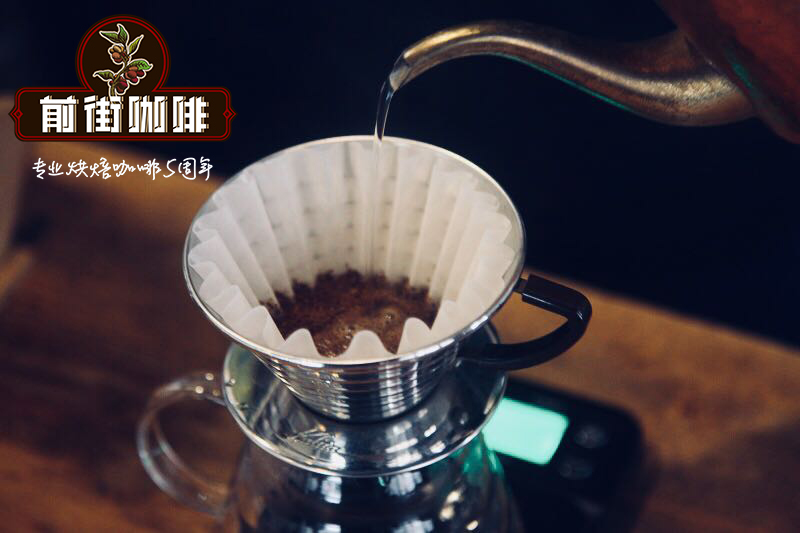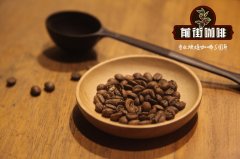Flavor characteristics of African Kenyan Nieri Coffee introduced the taste of Kenyan coffee beans

Professional coffee knowledge exchange more coffee bean information please follow the coffee workshop (Wechat official account cafe_style)
Nyeri Hill Farm in Nieri, Kenya: Neri Hills Manor
Varieties: sl 28pr sl 34 Jol Ruiru 11 and batian
Treatment: washing
Altitude: 1600 to 2200 m
Owner: Nyeri Dioceses
Town / city: Neri
Region: Nieri County in central Kenya
Flavor information:
Overall: dark chocolate, light wine, dried berries, cherries, oranges, floral aromas
Nieri Mountain Farm is located in the center of Nieri County, only 3 kilometers away from the famous coffee city of Nieri. The estate, managed by the Catholic archdiocese of Nieri, is one of the earliest and largest coffee farms in Kenya.
The Catholic archdiocese's ownership of Mount Neri Farm Coffee Manor dates back to 1904, when Shuata's fathers established the first coffee demonstration site at the current site of Shuata Missionary Hospital. In the farm area is the Italian Memorial Church, where the bodies of the Santo Dominique of Italy and the bodies of many of the casualties in World War II were buried.
The altitude ranges from 1600 meters to 2200 meters, and the temperature ranges from 10 degrees Celsius to 30 degrees Celsius. The annual rainfall ranges from 750 mm to 950 mm. The soil is well drained and has deep volcanic soil. All this has created some really different land, and it is not surprising that farms benefit from many direct sales around the world.
Of course, the purpose of the farm is to support the Catholic mission of the church, mainly to build new churches and fund education. However, a large portion of the income from farm coffee sales is used to pay wages! The farm has 375 year-round employees and is said to be the largest employer in New York.
In addition to other agricultural activities on the farm-including tea cultivation, livestock management, horticulture and reforestation-the Catholic Church managed to establish and maintain various health, education and animal husbandry institutions through farm coffee income in the last century. There are more than 23 institutions in the farm area, including schools and colleges, hospitals, seminary and early childhood education centres. If the plan comes true, they may soon add an additional business! Factory and farm managers Meshak and Martin are setting up a baking and packaging company to provide high-quality coffee for local restaurants and tourists. Meshak has 20 years of baking experience on his own, so he is confident that this adventure will be a success.
The farm has had its own dry and wet mill since 1934, first used by suriata's fathers to grind their coffee and then exported to Turin, where they were born in Italy. The original wet mill is still in operation and has been heavily maintained and modernized over the years. However, today's dryers are only used to handle underweight washed parchment and mbuni (natural coffee-neither of which is cost-effective and both mainly enter the local market).
Important Notice :
前街咖啡 FrontStreet Coffee has moved to new addredd:
FrontStreet Coffee Address: 315,Donghua East Road,GuangZhou
Tel:020 38364473
- Prev

Flavor characteristics of Rwandan Coffee in Rwanda lovers' Cooperative
Professional coffee knowledge exchange more coffee bean information please follow the coffee workshop (Wechat official account cafe_style) Rwanda _ coffee lovers' cooperative Rwanda Dukunde Kawa Cooperative once got a high score of 92 in Coffee Review! Coffee lovers' Cooperative (DukundeKawa Cooperative) was founded in 2000 and now has more than 2000 coffee farmers.
- Next

Kenya Yadini Kenya Coffee Flavor Features Kenya Coffee Brands
Professional coffee knowledge exchange More coffee bean information Please pay attention to coffee workshop (Weixin Official Accounts cafe_style) Kenya Yadini production area: Yadini processing method: washing altitude: 1550m1650m Cup test information: rich, acid rich, roasted nuts, fragrant chocolate, citrus, mellow Jia Yadini Coffee Manor Yadini Coffee Manor was founded in 1924. the
Related
- Detailed explanation of Jadeite planting Land in Panamanian Jadeite Manor introduction to the grading system of Jadeite competitive bidding, Red bid, Green bid and Rose Summer
- Story of Coffee planting in Brenka region of Costa Rica Stonehenge Manor anaerobic heavy honey treatment of flavor mouth
- What's on the barrel of Blue Mountain Coffee beans?
- Can American coffee also pull flowers? How to use hot American style to pull out a good-looking pattern?
- Can you make a cold extract with coffee beans? What is the right proportion for cold-extracted coffee formula?
- Indonesian PWN Gold Mandrine Coffee Origin Features Flavor How to Chong? Mandolin coffee is American.
- A brief introduction to the flavor characteristics of Brazilian yellow bourbon coffee beans
- What is the effect of different water quality on the flavor of cold-extracted coffee? What kind of water is best for brewing coffee?
- Why do you think of Rose Summer whenever you mention Panamanian coffee?
- Introduction to the characteristics of authentic blue mountain coffee bean producing areas? What is the CIB Coffee Authority in Jamaica?

